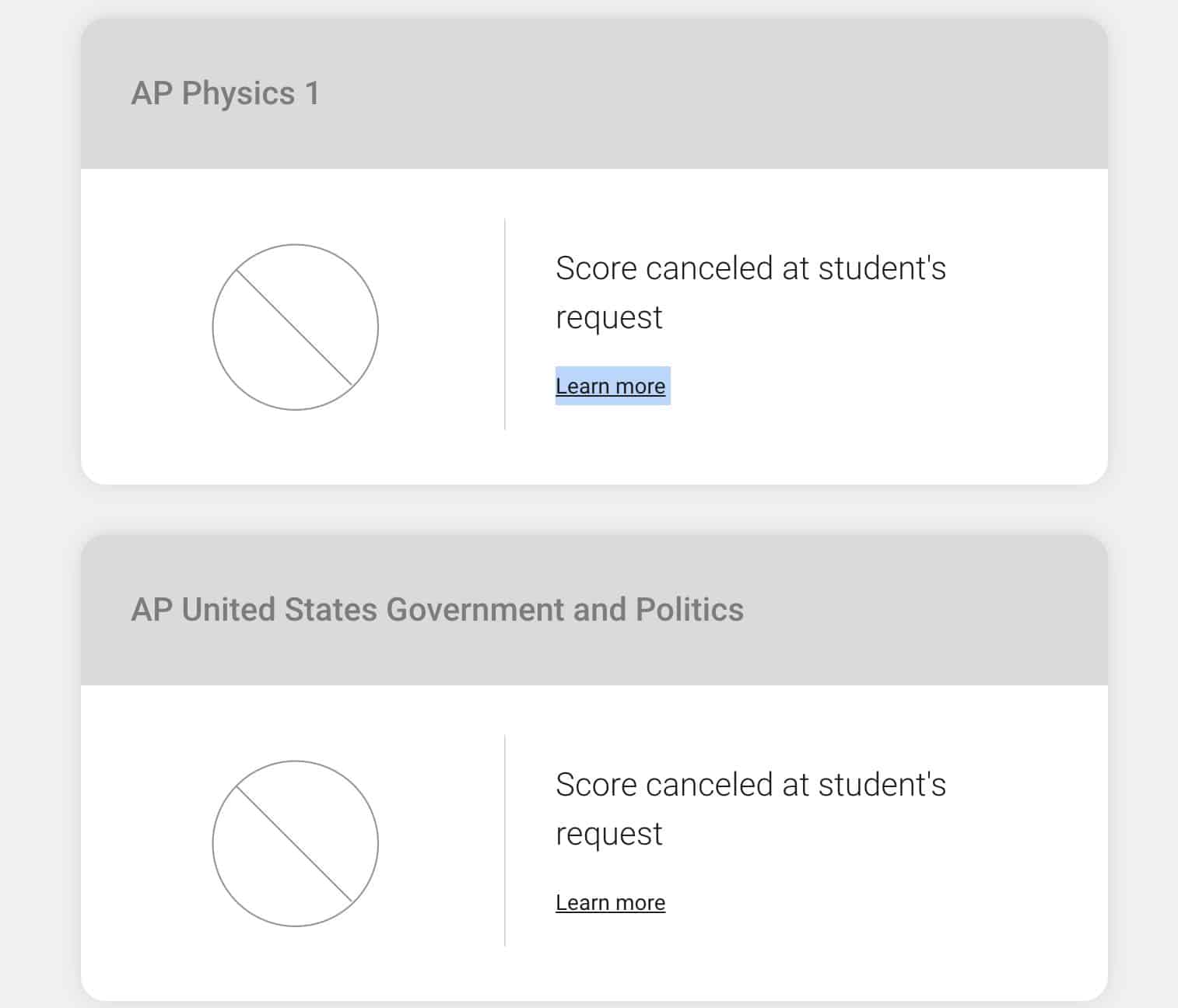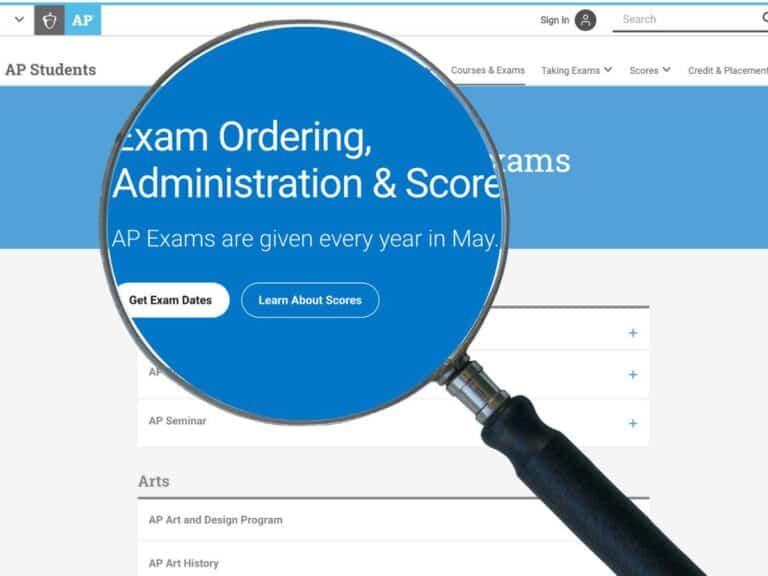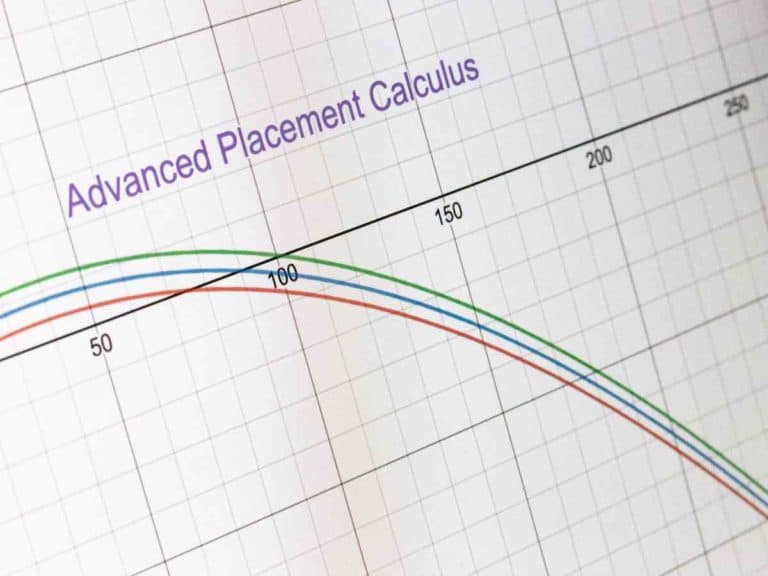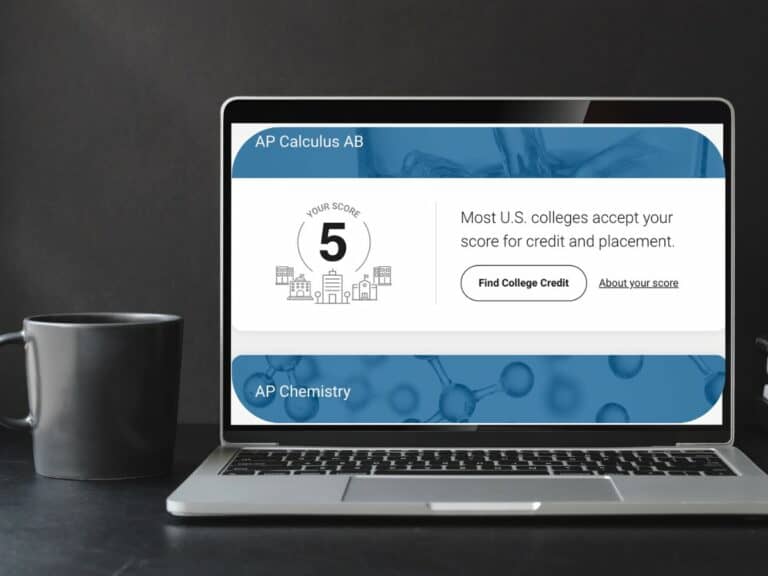What Happens If You Fail an AP Exam? Two Things You Need to Know
There are many exams that you have to take in high school. Some of them are referred to as standardized tests.
Put simply, standardized tests involve students from various parts of the country answering the same set of questions, after which they are scored in a consistent or standard manner.
This allows for the comparison of the performance of the individual students. One of the standardized tests that a high school student like you has to take is the AP exam.
You may feel pressured to do everything that you can to pass it because you were told that it is something that may grant you higher placement and college credit.
Especially if it’s your dream to earn a college degree, passing the AP exam may mean the world to a high school student like you.
But what happens if you fail an AP exam? Basically, nothing happens if you fail an AP exam. Whether you get a passing or failing AP exam grade, you can still go to college. Colleges do not take a look at the AP exam as the only a criterion for accepting or rejecting a student.
Just because failing your AP exam will still get you to college doesn’t mean that you should not do your best to get a passing score. Taking an AP course in high school consumes time.
Also, taking an AP exam consumes money. This is why you have to make the most out of your time and money by preparing for your AP exam very well to pass it.
Besides, getting a passing grade can give you the opportunity to earn your college degree faster than usual. This is one of the many perks that come with taking an AP course in high school and passing an AP exam.
But even if you fail the AP exam, there is still a neat solution as long as you pass the class. Make sure to read till the end to learn what I did to erase bad test scores from my transcript.
Getting to Know an AP Course and an AP Exam
Before we discuss further the fact that failing your AP exam won’t hurt your chance of getting admitted to college, let us first talk about why it’s a good idea to take an AP course and pass the AP exam later on.
Advanced Placement is what AP stands for. Just like what the name suggests, it’s all about giving a high school student like you the opportunity to be granted placement and course credit in college.
You can think of an AP course as a college course that a student may take even if he or she is still in high school. This can be very advantageous for you, and it’s because of a couple of reasons.
First, it lets you have an idea of what it’s like to be a college student.
Second, it makes it possible for you to finish college faster. That’s because it can earn you college credit, which means that there is no need for you to take the same course again once you’re already a college student.
However, to earn that college credit for taking an AP course, it’s important that you pass your AP exam. The said exam is scored from 1 to 5. Check out this table to know what each score means:
| AP Exam Score | Recommendation |
|---|---|
| 5 | Extremely well qualified |
| 4 | Very well qualified |
| 3 | Qualified |
| 2 | Possibly qualified |
| 1 | No recommendation |
Take note that the word “qualified” does not pertain to being qualified for college admission. If your score is 5, it means that you are extremely well qualified to be placed at an advanced class or win a college credit.
It’s also important for you to note that different colleges have different standards when placing a student at a higher level or giving them college credit.
For instance, popular colleges may require an AP exam score of 5, while others may require a minimum of 3.
If you think that an AP exam is always a written exam, think again. There are AP courses that do not end with a written AP exam.
For instance, a high school student who takes art and design will be required to come up with a portfolio, which will be graded. The grading system used is the same as the one in the table above.

Failing an Exam Doesn’t Mean It’s the End of the World
Earlier, we already mentioned the fact that colleges do not really take a look at an applicant’s AP exam score.
Actually, they cannot take a look at it because a student’s score from his or her AP exam will be included in the transcript or another similar record, which will be sent to the college where a student is admitted.
This is why a college admission officer won’t be able to know what your AP exam score is unless after you are admitted.
The reason why the college of your choice should have a glimpse of your AP exam score is to know whether or not you are qualified to be placed at a higher level class or given college credit.
Either way, your AP score won’t have any bearing on your admission. During the admission interview, however, it’s a great idea to talk about your AP course and how you passed the AP exam to show that you will make for an excellent college student.
Just in case you are unhappy that you have a failing score on your AP exam, worry not. That’s because you may still take an AP exam in the following year.
As a matter of fact, you may keep on taking it until you get a passing score. All of your scores will be recorded, although it is possible to request to have some of the earlier scores to be erased.
The only downsides to taking the AP exam more than once is that it consumes not only your time but also money.
Here’s a fact: you may not take an AP course in high school, which means that you do not have to take an AP exam later on.
There are high school students who skip taking AP courses and AP exams, including most especially those who do not intend to go to college after high school, or those who might end up with a low GPA because of it.
Similarly, you may choose to take an AP course in high school but decide not to take the AP exam afterward.
But if you can, it’s recommended that you take an AP course and pass your AP exam.
Especially if it’s your dream to graduate from a popular college, having an impressive AP exam score can work to your advantage as a student in it. But then again, it won’t affect your eligibility for being admitted to that college.
There is a caveat, however. Getting a C on the AP exam is a little different than failing. Read more about this topic in my other post.
Here’s What To Do If You Fail AP Exam but Pass The Class
This is what I learned when I was in the process of submitting my college applications – you can ask the College Board to either cancel or withhold the AP scores.
When you cancel the score, it will be permanently deleted from the database, and colleges will never know that you failed, e.g. I canceled two exams.

Withholding scores is less radical, you can choose to temporarily hide certain scores from certain universities. However, you have to pay a small fee for each request.
Both options are available for a limited time – usually by June 15 of the year you took the AP Exam.
So, don’t be late.
The process is straightforward:
- Log in to your College Board account
- Click on Scores in the menu
- Click on Score Reporting Service
- Download the form
- Fill the form
- Mail to College Board address with payment if needed
- Wait for 10 days
Related Questions
Should I be happy with an AP exam score of 2?
If you want to earn college credit, having a score of 2 may be disadvantageous as not a lot of colleges are willing to give college credit to students with an AP exam score below 3.
What are the hardest AP exams to pass?
The hardest AP exams to pass are those that are for difficult AP courses, and some common examples include English Literature, Chemistry, Biology, Physics C, Calculus BC, and US History.
Should you send low AP scores to colleges?
In general, it’s best to send only AP scores of 4 and 5 because you can get college credits, which means you may need to take fewer classes and graduate early. Some colleges accept 3s on AP tests, but you need to check the college policy.
Disclaimer: The views and opinions expressed in this article are those of the authors and do not necessarily represent those of the College Reality Check.





